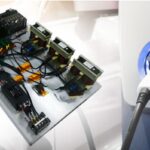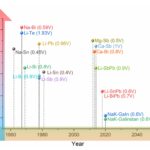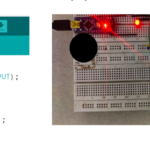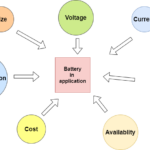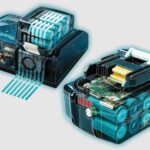A company in Finland that makes thin-film coating equipment says it is developing lithium-ion battery technology based on Pulsed Laser Deposition (PLD) as a way of improving battery energy and power density while reducing charge times and boosting safety.
Picodeon, based in Ii, Finland says it will work with Oulu University in Finland to deliver precision nano-porous thin films Li-ion battery markets. The program addresses anode, cathode, and separator coating technology, as well as solid electrolyte technology.

Pulsed laser deposition as depicted by Wikipedia: PLD is a physical vapor deposition technique where a high-power pulsed laser beam is focused to strike a target of the material to be deposited. This material is vaporized from the target and deposits as a thin film on a substrate). The basic setup is simple relative to many other deposition techniques, but the physical phenomena of laser-target interaction and film growth are quite complex. When the laser pulse is absorbed by the target, energy is first converted to electronic excitation and then into thermal, chemical and mechanical energy resulting in evaporation, ablation, plasma formation and even exfoliation.
Picodeon says its highly uniform aluminium oxide nano-coatings from 2 um down to 20 nm are being evaluated by several leading industry players in separator and cathode applications. The company says its work with Oulu University will focus on novel ways of creating electrode materials by using new nano-structured anodes without any binder. This development is made possible by Picodeon’s proprietary PLD technology. This technology improves energy density by up to 500% with excellent rate capability and lifecycle performance.As part of the program, PLD-based solid electrolytes using LiPON are being developed.
Picodeon CEO, Fergus Clarke said “We are developing a new generation of manufacturing tools that will give battery companies unprecedented precision and accuracy for their battery manufacturing process.”

